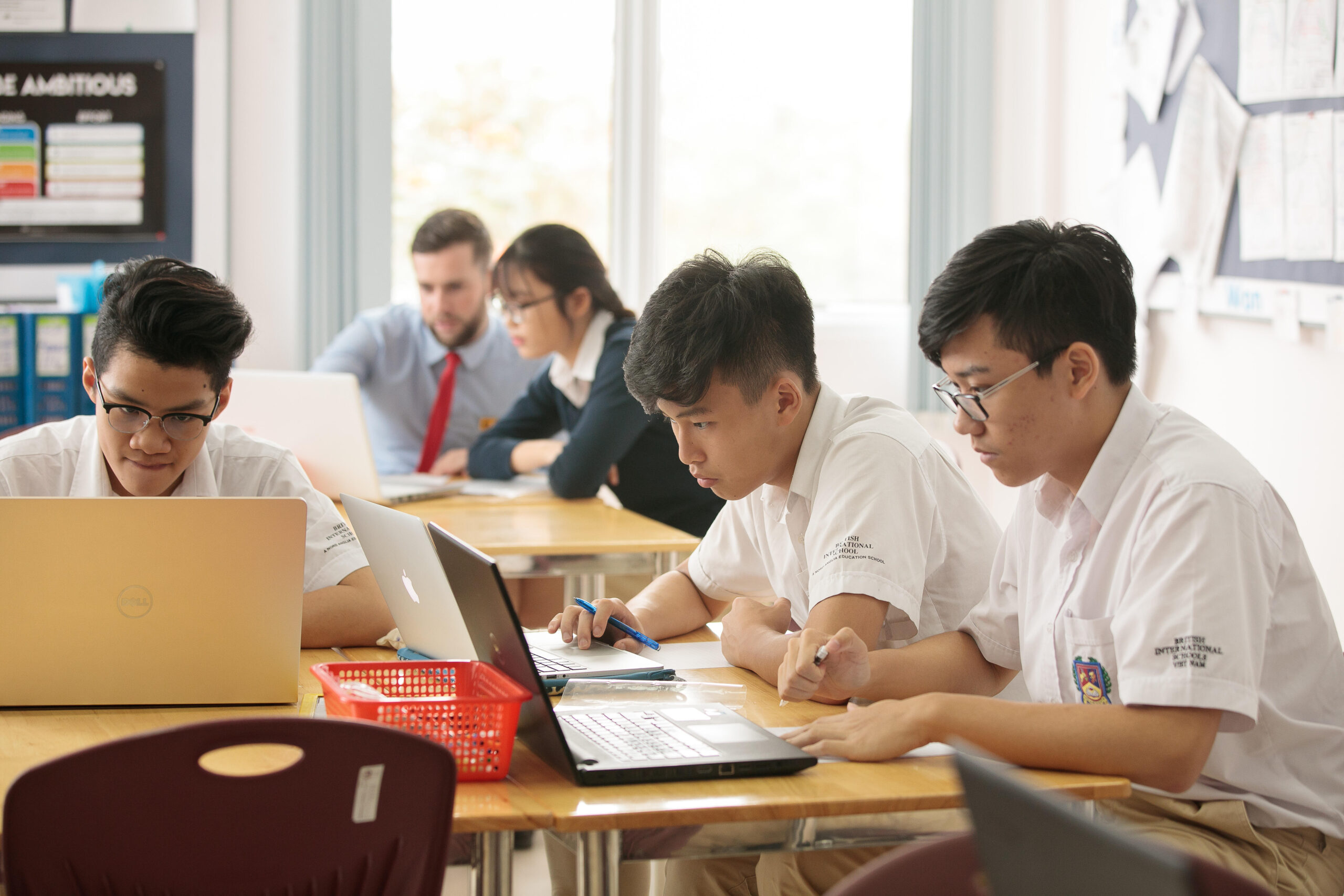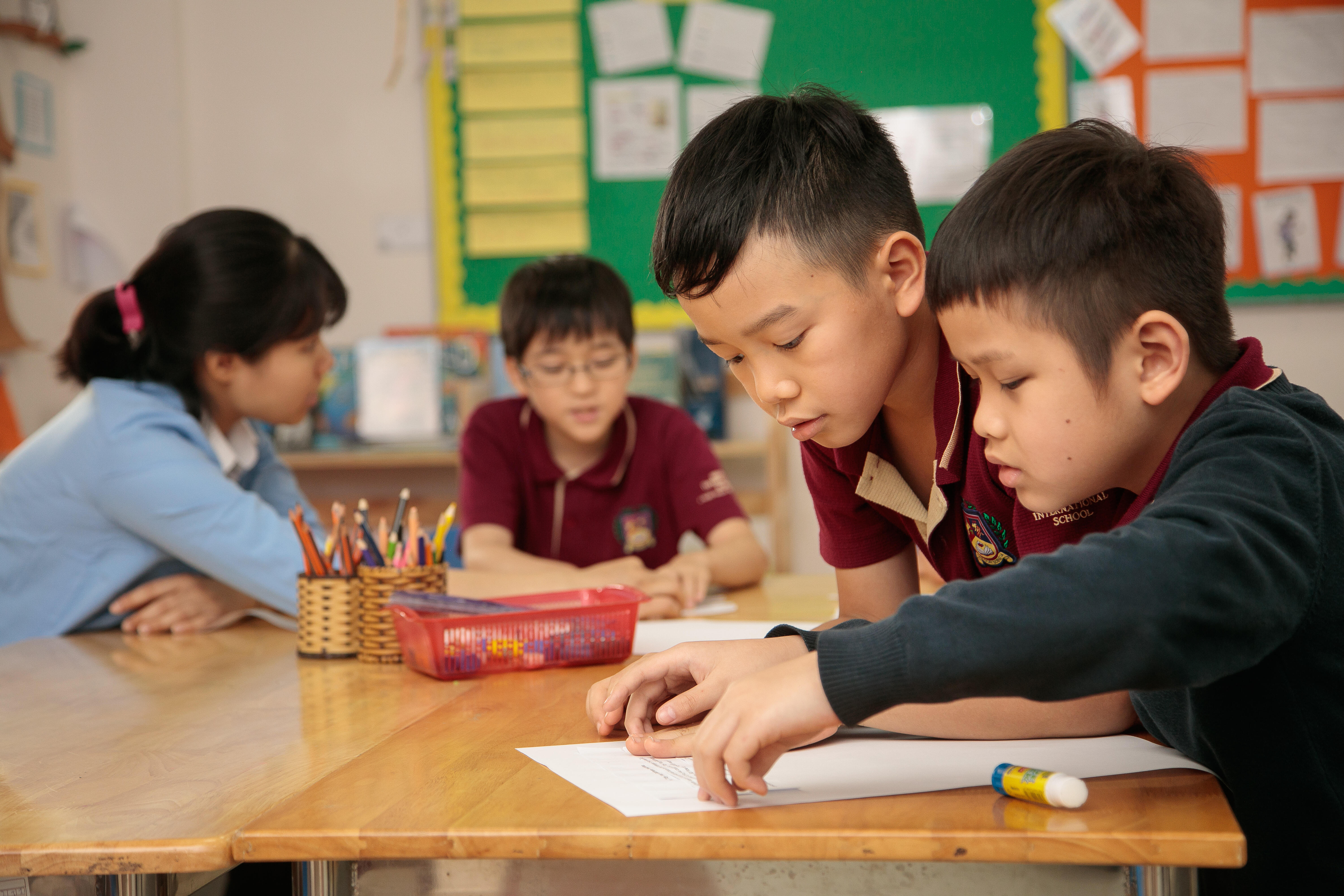
In an increasingly complex and globalised world, children need support navigating uncertainty, creatively solving problems, and adapting to change. Learn more about the benefits of critical thinking.
Through challenging issues impacting the environment, people and the economy, critical thinking is going to be an essential skill for the future, supporting each child to develop agile skills and confidently leverage technology as well.
So what is critical thinking?
The British International School Hanoi (BIS Hanoi) Assistant Head of Secondary, Gemma Archer describes healthy critical thinking as the process of giving reasonable, reflective thinking, with a focus on deciding what to do or believe.
“Basically, it’s thinking about thinking,” Gemma said. “Being a critical thinker puts you in an empowered position to make informed and rational decisions about your life and your future. We see many benefits of critical thinking in our BIS Hanoi environment, but here are the four we focus on.”
Why is critical thinking important?
Improved academic success
The skills to logically analyse information, evaluate evidence, make reasoned conclusions and better decisions comes down to healthy critical thinking.
“When we see BIS Hanoi students develop these transferable skills, it not only improves their academic outcomes, but also gives them more career choices,” said Gemma.
Skills to navigate through a world of misinformation
We’re living in a globalised media-rich time, full of information and misinformation.
“The ability to identify fallacies, spot rhetorical tricks and challenge cognitive biases that may all be used to influence or manipulate us into thinking traps is paramount,” said Gemma. “With AI increasing, it will be our critical thinking abilities as humans that will continue to see us move forward in this technological revolution.”
Adapting and being resilient to change
The last few years in particular, have taught us the importance of critical thinking – to be able to re-evaluate and adapt to change and uncertainty. Having good thinking habits to question assumptions, consider evidence objectively, and be open to new ideas builds mental flexibility, and helps children adapt and respond constructively to change – allowing them to thrive in different situations.
Being part of the solution, now and into the future
Breaking down complex problems, identifying key issues, challenging assumptions and considering alternative solutions are all benefits of critical thinking,” said Gemma. “And these are the skills that inspire our BIS Hanoi students to continue to grow, and contribute to their communities in powerful ways.”
Exploring issues from many different angles, and imagining alternative scenarios sparks creativity, and can also be used to encourage more collaboration and problem-solving power to lead sustained change.
The importance of critical thinking in education is being recognised by international organisations, like International Baccalaureate Organisation (IBO), too. The International Baccalaureate Core – Creativity, Activity and Service, Theory of Knowledge and Extended Essay – creates exciting opportunities for students at the British International School Hanoi to think about their own values and behaviour. Another benefit of critical thinking is the ability to develop self-awareness – a sense of identity and understanding about each person’s place in the world.
“An outstanding education isn’t just about the curriculum; it’s about nurturing creativity, empowering critical thinking and building resilience,” said Gemma. “It’s about preparing our children to confidently embrace exciting opportunities, and tricky situations, to provide them with the right skills to thrive in a vibrant world.”
In March, Gemma Archer will join fellow leading Nord Anglia Education academic experts from around the world in Hanoi, Vietnam, to explore innovative approaches in teaching and learning to ensure children are prepared to thrive in the future world of work.
Hosted by Nord Anglia Education schools the British International School Hanoi and the British Vietnamese International School Hanoi, more than 200 global education leaders will also meet with parents, students and the wider Hanoi community to share best practice, exciting research, and innovative ideas in education.
